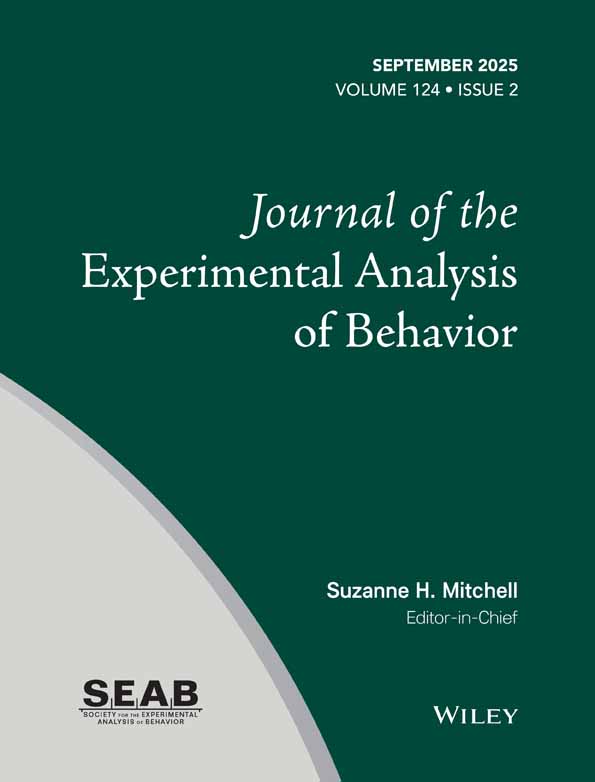EFFECTS OF STIMULUS CONTROL AND DEPRIVATION UPON DISCRIMINATIVE RESPONDING1
The author thanks Dr. David Eckerman and Dr. Joseph Pear for their comments on the manuscript.
Abstract
Discriminative responding in pigeons was studied under multiple variable-interval extinction schedules in which extinction was correlated with either a tone or a white keylight. The two procedures resulted in weak and strong stimulus control, respectively. In the first experiment, there was no interaction between schedule components when stimulus control was strong and reinforcement was omitted under the previously reinforced component, However, there was marked induction between components when stimulus control was weak and responding was extinguished under the previously reinforced component. In the second experiment, hours of food deprivation was varied under two levels of stimulus control. Deprivation mainly influenced response rates under the extinction stimulus, with greater absolute rate increases occurring the lower the existing level of stimulus control. Increases in responding during the extinction stimulus were four times as great from 24 to 72 hours of deprivation as from 24 to 48 hours under conditions of both high and low stimulus control.




